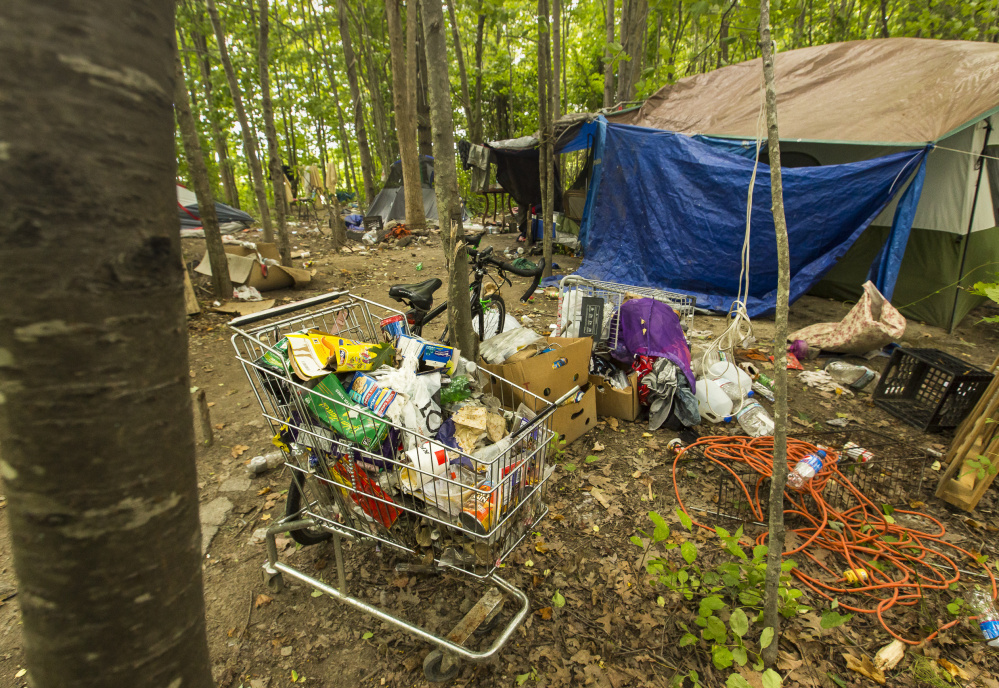An ongoing police operation to shut down a homeless encampment in Portland has sparked an argument. Unfortunately, it’s not the one we should be having.
On one side of the current dispute we have the property owners of the Tent City’s location and the neighboring homeowners who want to see the improvised village removed along with its inhabitants.
On the other, there are the residents of the encampment themselves, who say they would rather live in a tent than in the city shelter, where they would be exposed to bedbugs, lice, scabies and the “drama” of sleeping in close quarters with scores of others who have nowhere else to go.
But this isn’t an either-or problem. It’s both.
Neither the illegal campground nor the overcrowded “emergency” shelter are adequate ways for human beings to live.
The city has no choice but to evict the campers if the landowners don’t want them on their property, but that is not a solution to a problem; it’s just another complication in a thorny crisis.
It’s overly simplistic to look at homelessness as a lack of housing alone. There are many contributing factors, including domestic violence, untreated mental illlness, difficult re-entry for veterans, drug and alcohol abuse and other bad lifestyle choices.
But those factors have always existed and homelessness has not – at least not in the way we have grown to tolerate it since the 1980s.
That was when the federal government stopped building public housing, pushing the responsibility to state and local governments working with private landlords and nonprofits.
Since the housing market does not provide the right incentives for private developers to build new housing for the poor and near poor, many are left outside – literally and figuratively.
The homeless are just the visible evidence of the affordable housing shortage. For every person lined up at the shelter or pitching a tent, there are many more paying most of their incomes in rent or wearing out their welcomes by sleeping on friends’ and relatives’ couches. The National Coalition to End Homelessness estimates that there is a deficit of 7 million units of affordable housing to meet current needs.
Homeless people can’t just move to someplace where housing is cheaper, as some argue, because cities, where there are the biggest concentrations of homeless people, are also the place where jobs, public transit and other services are concentrated – especially important for people who don’t have cars.
So, it’s pointless to argue whether a tent city or a crowded emergency shelter is the best way for people to live.
Neither should be considered acceptable, and figuring out the best way to finance new low-income housing in the places where it is needed should be the argument we are having.
Send questions/comments to the editors.



Success. Please wait for the page to reload. If the page does not reload within 5 seconds, please refresh the page.
Enter your email and password to access comments.
Hi, to comment on stories you must . This profile is in addition to your subscription and website login.
Already have a commenting profile? .
Invalid username/password.
Please check your email to confirm and complete your registration.
Only subscribers are eligible to post comments. Please subscribe or login first for digital access. Here’s why.
Use the form below to reset your password. When you've submitted your account email, we will send an email with a reset code.